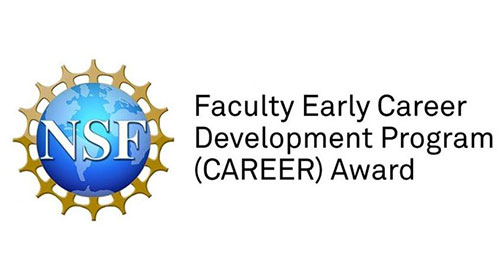Posted on October 9, 2023 by Amanda Cerreto

Itamar Lerner, assistant professor of psychology in the College for Health, Community and Policy (HCAP) has earned a five-year, $725,000 CAREER award from the National Science Foundation (NSF). The award will support research that helps scientists better understand the relationship between Rapid-Eye Movement (REM) sleep, stressful events and how well people cope with and perform under stress.

Lerner and his research team will study first responders, particularly firefighters and paramedics, with the aim of understanding which individuals are prone to develop post-traumatic stress symptoms, potentially leading to post-traumatic stress disorder (PTSD).
This project is a continuation of Lerner’s years-long laboratory-based research on sleep and stress, but this is the first major award he has received to support the extension of his studies to real-life environments outside of the lab. The CAREER Program offers the NSF’s most prestigious awards in support of early-career faculty who have the potential to serve as academic role models in research and education and to lead advances in the mission of their department or organization.
“My main research aims to understand how sleep affects cognition,” Lerner said. “We want to think about the brain as a computer. The computer can learn to behave in the world, and for that you need strong information processing. Even the effects of sleep on stress regulation have computational aspects, since the system needs to identify which elements in the environment were most predictive of threat and which can be associated with safety.”
The CAREER award will help Lerner explore how sleep affects emotional and stressful memories. “The particularly unique thing about this project is that I’m trying to look at the way day-to-day, habitual sleep, prior to any potentially traumatic experiences, affects your sensitivity to future stress and your response to stressful events,” he said.
“We are very proud of Dr. Lerner’s successful proposal to the NSF. A CAREER award is particularly prestigious, indicating NSF’s confidence in Dr. Lerner, the cutting-edge nature of his work and their commitment to a successful launch of his career,” said Lynne Cossman, dean of the college. “Sleep is so very important to most aspects of our health, but to measure sleep to help predict future stress reactions of first responders is immensely valuable.”
Lerner and his team have already been recruiting participants for the last two years, partnering with agencies such as the San Antonio Fire Department and Austin-Travis County EMS. He hopes to recruit at least 100 more people in the next five to six years. Participants will have their REM sleep measured, as well as take part in surveys, cognitive tasks and functional magnetic resonance imaging (fMRI) to measure their levels of reactivity and stress.
The challenge to recruitment, however, is the participants’ career level. Lerner is looking for participants who are early on in their career who have just started training.
“The whole point of this project is to measure emergency responders’ sleep before they are deployed,” he said. “We need an idea of their sleep before they are thrown into these stressful situations. That means I need to catch them right as they’re about to get into the system.”
Apart from measuring sleep cycles and determining patterns for potential PTSD, Lerner hopes that this research will aid in establishing protocols to help future emergency responders become less sensitive to demanding events.
“In general, more REM sleep tends to allow individuals to have less brain activation during fearful experiences, potentially protecting them from exaggerated stress responses,” Lerner said. “If we can prove this relation in emergency responders, we can think about minimizing the risks ahead of time, for example by instituting REM sleep screening for these types of jobs.”
Lerner is a cognitive and computational neuroscientist and the principal investigator of UTSA’s Sleep and Memory Computational Lab. His research interests include, beyond sleep and emotional regulation, the effects of sleep on learning and memory, and its involvement in pattern recognition, creativity and insight.
Additional interests include brain mechanisms contributing to semantic memory – a form of long-term memory comprised of basic facts such as the meanings of words—in wake and sleep, language acquisition, and the difference in cognitive processing between healthy and patient populations, including individuals with post-traumatic stress disorder and schizophrenia.
His research has been funded by the NSF, the National Institutes of Health (NIH) and the U.S. Department of Defense. He has published in various distinguished journals including the Journal of Neuroscience, Sleep Medicine Reviews, and Neurobiology of Learning and Memory.

